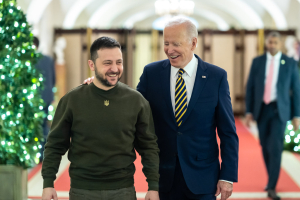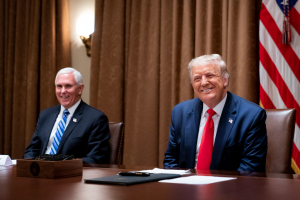Support migrant centric journalism today and donate

By Sanwar Ali:
Layoffs in the technology sector in the United States have raised concerns for foreign workers, especially those from India who make up a significant portion of the IT workforce. Layoffs in the tech sector in the US have put foreign workers, mostly H1B visa holders, in a difficult position. Their residency status in the US is tied to their employment, which is now uncertain due to the layoffs. This has caught the attention of policymakers and ignited conversations around visa reforms. In the US in many cases the only visa option available is the H1B visa. The E2 visa scheme is not usually available to Indian nationals.
A Growing Concern: The Plight of H1B Visa Holders Amid US Tech Layoffs
The US tech industry, which has thrived on the expertise of foreign workers during its boom years, is currently witnessing a contraction in some areas. This shrinking has resulted in job losses for many professionals, including those who had migrated from different parts of the world to contribute to the tech ecosystem in the country. However, the boom in AI (artificial intelligence) has resulted in increased demand in certain areas.
The H1B visa, a nonimmigrant visa, allows employers to employ foreign workers in specialty occupations that require theoretical or technical expertise. The visa is highly coveted, with a lottery system in place due to the high volume of applications received annually. For instance, this year saw more than 780,000 applications under the H1B lottery for a mere 85,000 available visas. However, this includes a large number of duplicate applications.
H1B Visa Process
The H1B visa, which can be renewed after its initial three-year term, is often seen as a stepping stone towards permanent residency in the US. Consequently, foreign professionals on the H1B visa tend to settle in the country, buying property and moving their families. However, job losses mean that these overseas professionals may be unable to stay in the US. If you lose your job you only have 60 days to secure new employment in a specialist level occupation, with a company willing to sponsor your visa.
Real Stories, Real Challenges
As covered in a NPR podcast, the human toll of these policies is evident in stories like those of Aashka and Nilanjan (names changed for privacy), both H1B visa holders who lost their jobs during the recent layoffs. Aashka, a product engineer at Amazon, and Nilanjan, who worked in digital advertising for Google, faced the daunting task of securing new employment within the stipulated 60-day period, failing which they would have to leave the country. The precariousness of the H1B visa, not only impacts the individual visa holder but also has a broader impact by discouraging global talent from choosing the US as their work destination.
The Need for Change: Extending the H1B Grace Period
In light of these challenges, there have been significant calls for reforming the H1B visa system. One significant proposal has been to extend the grace period for laid-off H1B workers from 60 to 180 days. This extension, recently approved by the White House Asian American and Native Hawaiian Pacific Islander (AANHPI) Advisory Committee, could provide much-needed relief for thousands of Indians in the US who have been recently laid off.
The recommendation will now be submitted to the Commission Co-Chairs US Secretary Becerra and Ambassador Tai for review before being sent to the President for his consideration.
The Role of the AANHPI Committee
The AANHPI committee, established by President Biden, has been instrumental in pushing for these changes. It has been working in close partnership with the Biden-Harris Administration to advance equity, justice, and opportunity for Asian American, Native Hawaiian, and Pacific Islander communities. The committee is designed to submit recommendations to the President on a rolling basis, allowing for public feedback and regular updates on the ongoing implementation process.
Among the key figures in the committee, Ajay Bhutoria has emerged as a strong voice for NRIs in the White House. He has been instrumental in passing significant recommendations, including the extension of the H1B visa grace period and the freezing of dates for minor's green cards once filed for Adjustment of Status.
Next Steps
The next proposed steps from the committee include asking the USCIS to issue Employment Authorization Documents (EAD) and Advance Parole (AP) to those stuck in the green card backlog and requesting the agency to not count derivatives towards employment-based green cards.
The H1B and the American Dream: A Call for Action
The current situation highlights the urgent need for comprehensive immigration reform in the United States. Other countries such as the UK make it easier for migrant workers to gain permanent residence and stay long term.
The proposed extension of the grace period for laid-off H1B workers is a step in the right direction. However, there continues to be significant concerns for many of the nearly one million Indians working in the US on different visas, who have difficulty obtaining a green card. Some have argued that it is time to reform the US visa system in a way that acknowledges the significant contributions of foreign workers and ensures that their American dream doesn't end abruptly with the loss of a job.
Conclusion
Making it easier for Indian IT workers to remain in the US on a permanent basis is controversial. Both Labor Unions and right-wing Republicans are against the idea. They claim that foreign IT workers compete for jobs with Americans. Significant reform for the time being seems unlikely. It is difficult pushing this sort of legislation through both Houses of Congress. Immigration reform may be necessary so that the US can continue to attract global talent and maintain its position as a global leader in technology and innovation.
workpermit.com helps with US Work Visa: L1, H1B, E2, and O1 Visas
There are various types of US visas that individuals can apply for, depending on their circumstances. Some of the most common employment-based visas include:
L1 visa: This visa is for intracompany transferees who work in managerial or executive positions or have specialized knowledge.
H1B visa: This visa is for specialty occupations that require theoretical or technical expertise in specialized fields.
E2 visa: This visa is for investors who have made a significant investment in a US business and, management or essential skills employees. Only certain nationalities can apply.
O1 visa: This visa is for individuals with extraordinary abilities in the arts, sciences, education, business, or athletics.
Workpermit.com is a specialist visa services firm with over thirty years of experience dealing with visa applications. For more information and advice, please contact us on 0344 991 9222 or at london@workpermit.com(link sends e-mail)





















